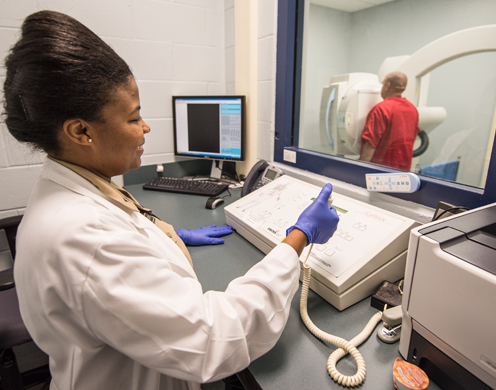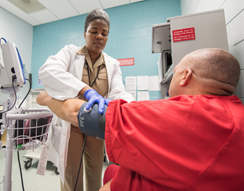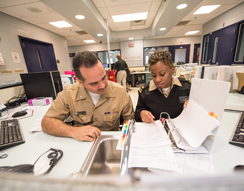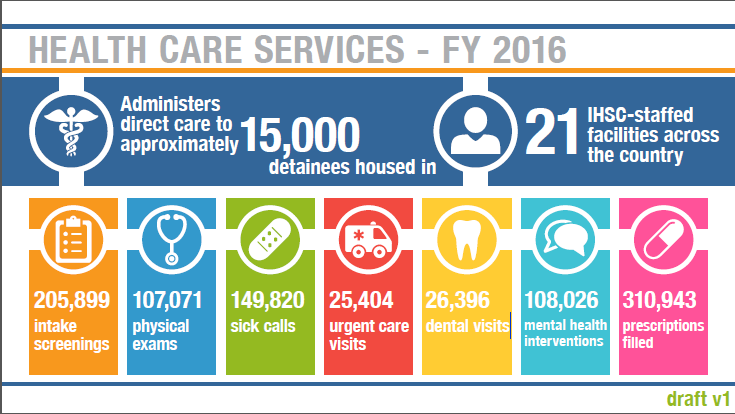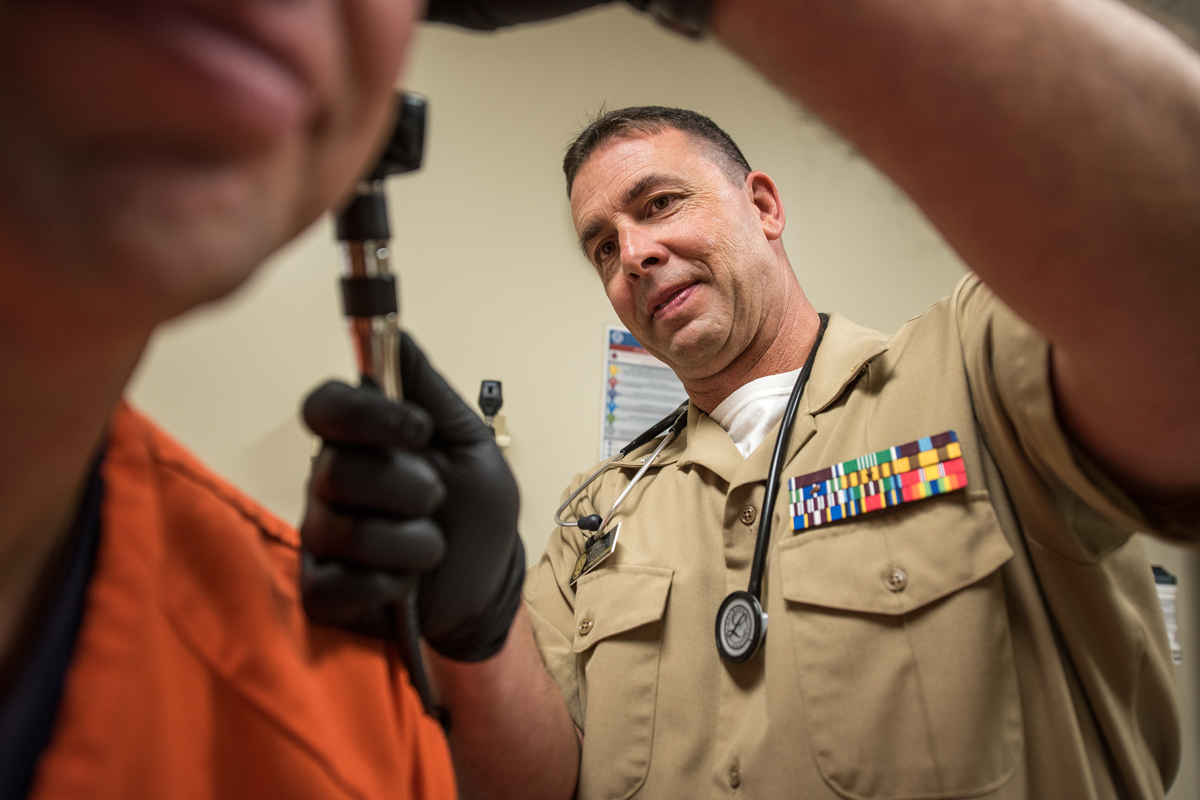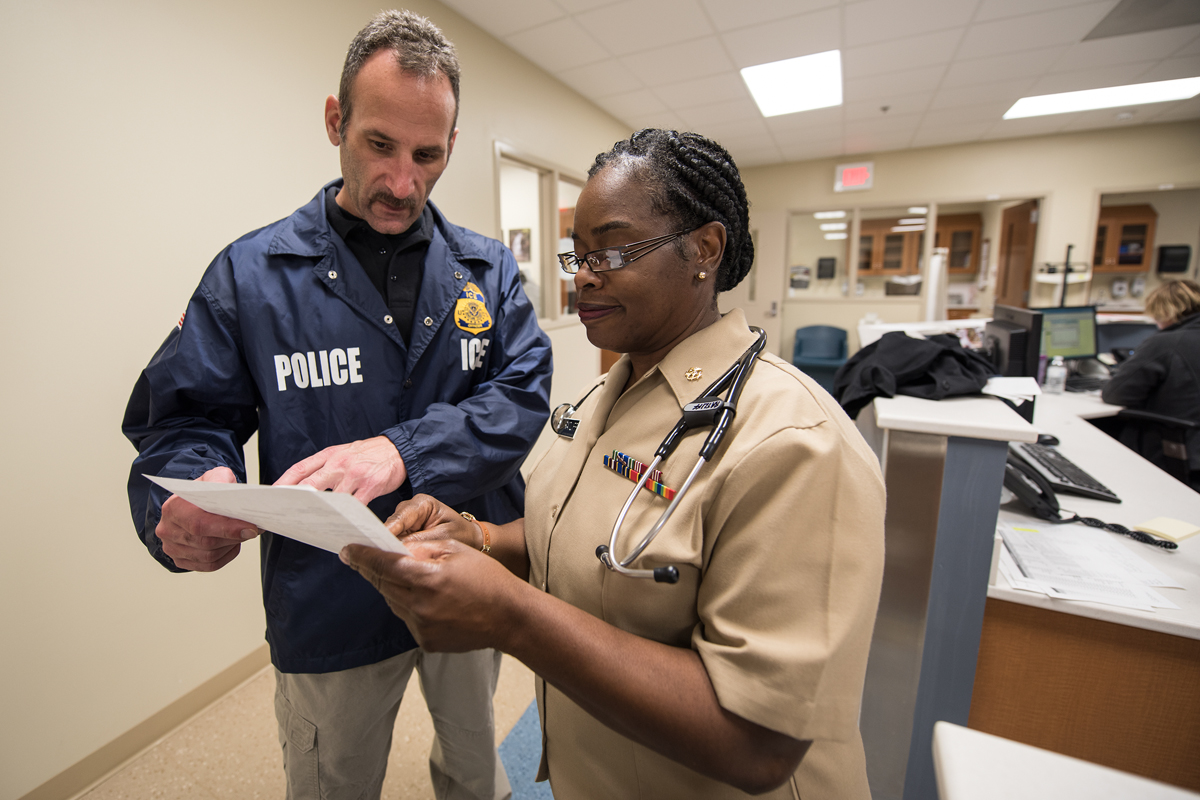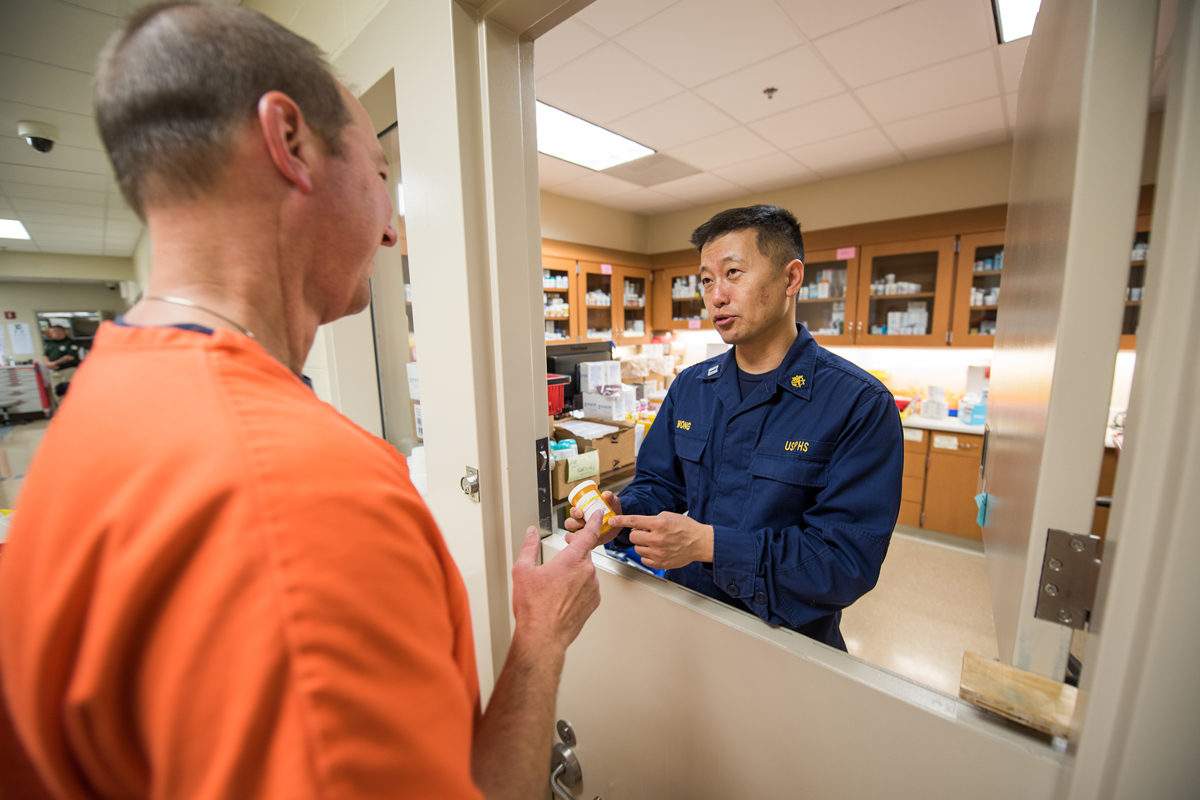ICE Health Service Corps is committed to helping those in need
Thanks to U.S. Immigration and Customs Enforcement (ICE) Health Service Corps (IHSC), many detainees are given a level of medical care they would otherwise not receive.
This care helps them battle a broad range of medical conditions that are often associated with transitory living conditions, lack of resources, or the perils of their travels.
One example is the quick action of IHSC staff to save the life of a man who arrived at an ICE facility jaundiced and confused. The man had a history of alcohol abuse and his symptoms were initially attributed to that condition. The IHSC staff intervened on the patient’s behalf and sent him immediately to an emergency room for care. He was admitted to an intensive care unit and diagnosed with a severe medical issue. He received the care he needed and made a full recovery.
Every day the women and men of IHSC confront challenging situations on the front lines of immigration enforcement as they compassionately tend to ICE detainee’s medical, dental and mental health needs. The population they work with includes women, children and men with varied cultural and socio-economic backgrounds and nationalities.
IHSC is made up of a multisector, multidisciplinary workforce of 1,100 employees. The MCMU is a unit within IHSC with the majority of MCMU staff composed of registered nurses. These nurses serve as field medical coordinators and managed care coordinators at ICE headquarters in Washington, D.C. In addition to their work with ERO IHSC, these professionals are also U.S. Public Health Service Commissioned Corps Officers. The MCMU conducts site visits at non-IHSC staffed detention facilities where detainees are housed to ensure that the on-site medical staff are providing health care in compliance with ICE National Detention Standards.
IHSC staff also conduct investigations into complaints regarding health care involving detainees and work with facilities to improve both access and quality of care provided. The staff assists with the appropriate placement of detainees to ensure proper level of care and provide case management, monitoring and reporting on detainees admitted to the hospital.
IHSC ensures that every detainee undergoes a complete health screening within 12 hours of admission, including a complete evaluation of the individual’s medical, dental and mental health status. If detainees have a chronic health problem, they are referred to a primary care provider for medical treatment.
IHSC’s work often has a positive effect on the lives of detainees and their families in unexpected ways. When a male detainee in his 30s was encountered with severe diabetes, IHSC staff administered care over several months. The detainee was provided extensive education on his condition and how to control his diabetes through proper nutrition and insulin usage. When he left detention with a newborn son, the detainee thanked IHSC staff for their help. Though he had lost hope when he was diagnosed with diabetes, he shared that he was prepared to manage his condition with IHSC’s education and support, according to IHSC.
The history of IHSC is integral to the history of the United States. Millions of immigrants came into this country through Ellis Island in 1891 when the U.S. Public Health Service was first authorized by the Immigration Act to examine and quarantine, if necessary. Today, IHSC carries on that tradition by providing comprehensive health services to approximately 15,000 detainees at IHSC-staffed facilities and medical case management and oversight for an additional 18,000 detainees housed at non-IHSC staffed detention facilities.


